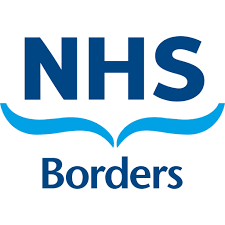Admit for immediate assessment
- Children < 3 months old with a temperature > 38°C or more.
- Adults/children with suspected complications eg meningitis, mastoiditis, or facial nerve paralysis.
- People with severe systemic infection
Consider admitting:
- Children younger than 3 months of age.
- Children 3–6 months of age with a temperature of 39°C or more.
For all people with AOM:
- Advise that usual course of AOM is about 3 days but can be up to a week.
- Advise regular paracetamol and/or ibuprofen for pain.
For people who do not require admission to hospital but are systemically very unwell, have symptoms and signs of a more serious illness or condition, or have a high risk of complications
- Offer an immediate antibiotic prescription.
- Advise them to seek medical advice if symptoms worsen rapidly or significantly or they become systemically very unwell.
For people who may be more likely to benefit from antibiotics (those with otorrhoea, or those aged less than 2 years with bilateral infection), take account of evidence that acute complications such as mastoiditis are rare with or without antibiotics, and the possible adverse effects of antibiotics and consider:
- No antibiotic prescription— with advice about an antibiotic not being needed and seeking medical help if symptoms worsen rapidly or significantly, do not improve after 3 days, or the person becomes systemically very unwell.
- A back-up antibiotic prescription— with advice about an antibiotic not being needed immediately; using the back-up prescription if symptoms do not start to improve within 3 days or worsen significantly or rapidly at any time; and seeking medical help if symptoms worsen rapidly or significantly, or the person becomes systemically very unwell, or
- An immediate antibiotic prescription— with advice to seek medical advice if symptoms worsen rapidly or significantly or the person becomes systemically very unwell.
For other people who may be less likely to benefit from antibiotics, take into account that antibiotics make little difference to symptoms or the development of common complications (which are rare with or without antibiotics) and possible adverse effects of antibiotics and consider:
- No antibiotic prescription— with advice about an antibiotic not being needed and seeking medical help if symptoms worsen rapidly or significantly, do not improve after 3 days, or the person becomes systemically very unwell.
- A back-up antibiotic prescription— with advice about an antibiotic not being needed immediately; using the back-up prescription if symptoms do not start to improve within 3 days or worsen significantly or rapidly at any time; and seeking medical help if symptoms worsen rapidly or significantly, or the person becomes systemically very unwell.
If an antibiotic is required:
- Prescribe a 5–7 day course of amoxicillin (erythromycin or clarithromycin if penicillin allergic).
- The second choice oral antibiotic is to prescribe a 5-7 day course of co-amoxiclav where there are worsening symptoms on the first choice antibiotic taken for at least 2-3 days (Microbiology advice if penicillin allergic).
Routine follow up is not required in the absence of persistent symptoms of AOM.
